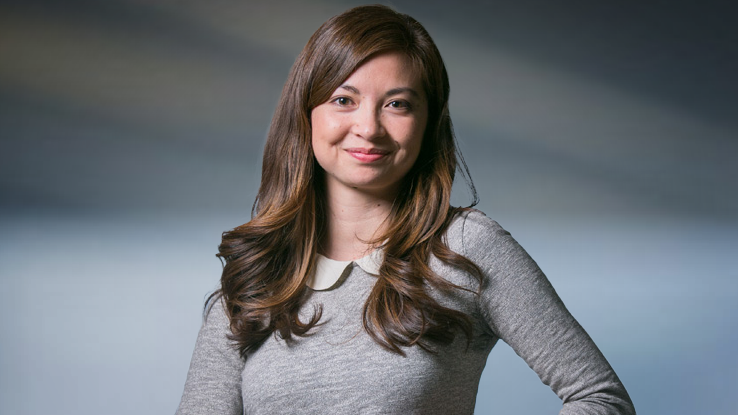
The Libraries’ Robin Davis is a Library Journal “Mover & Shaker”

Library Journal has named the NC State University Libraries’ User Experience Librarian Robin Davis a 2022 “Mover & Shaker.” Davis is recognized in the award’s Innovators category for her advocacy for accessibility initiatives at the Libraries and her work on user-focused services.
Davis becomes the thirteenth staff member from the Libraries to receive the award—the most honorees of any academic library. Annually since 2002, Library Journal has chosen a class of innovative librarians and library staff members from an international pool of more than 300 nominees.
“Robin Davis is, simply put, an accessibility champion,” writes Josh Boyer, Head of User Experience, in his nomination of Davis. “From the moment she arrived at the NC State University Libraries in June 2019, she convinced the User Experience department to make accessibility its #1 priority. Davis has helped lead a comprehensive assessment of Libraries services, facilities, and collections to implement best practices in accessibility and inclusion, meeting or exceeding ADA requirements for equal access and creating an equitable environment for disabled individuals.”
"Robin has integrated effective user research into all facets of the Libraries work and stayed laser focused on the needs of the university community,” says Greg Raschke, Senior Vice Provost and Director of Libraries. “Robin also makes time to be a fantastic mentor for student employees, graduate students interested in technical roles in the library and information science profession, and colleagues new to the profession. She is a great, positive contributor to our services, systems, and culture."
Davis has helped lead a change in the Libraries’ culture to focus on not just user needs in general, but also on a wide range of use cases for neurodiverse users—work that has been all the more important with the added stress of the pandemic and when students are under time crunches at the ends of semesters.
Davis chairs the Libraries’ Accessibility Committee, which has forged new partnerships with the campus Disability Resource Office and Office for Institutional Equity and Diversity and advises Libraries staff about accessible practices in their work. Davis also leads the cross-departmental User Research Team, which has succeeded in creating a pervasive culture of integrating user research into the first stage of projects throughout the organization.
“A major goal of accessibility is to remove barriers to information, which of course is a goal of librarianship, too,” says Davis. “Accessibility is also an EDI goal—a library can’t be inclusive if its buildings, services, and website are not accessible for all users, including users with disabilities.”
Changes have included the creation of sensory friendly maps that help students with sensitivities find study spaces to fit their needs, the production of captions and transcripts for video content, and a removal of inaccessible PDFs from the website. Davis is particularly proud of improvements to website forms through which students access Libraries services. She led a review to standardize forms and make their style and function consistent. Other website improvements have included making menus navigable by keyboard and minimizing auto-playing animations.
“One small thing I’m proud of doing is changing some language on our website,” Davis notes. “Previously, we’d listed over 100 technology lending devices as being available on a ‘walk-up’ basis. But not everyone walks, so I suggested changing that language to ‘borrow from desk’ to be more inclusive. It’s a tiny but meaningful change.”
Davis also created a framework to clearly communicate the most important information on the Libraries website—which turned out to be crucially important during the pandemic, when information about safety policies and available services was changing quickly.
“When we were adding banners and updating content, we had no idea if we were putting on a band-aid that we would soon remove or if we were revising half the website,” Boyer writes. “Robin’s evolving framework got us through those early days, and has evolved to enable us to keep patrons up to date for almost two years.”
Although Davis is receiving this individual recognition, she is thankful to work in an organization that shares her values and quick to credit co-workers like Meredith Wynn and Erik Olson and student workers like Myra Bari and 2020 Student Accessibility Champion Lauren Murillo.
“The Libraries has a long history of accessibility efforts dating back a number of years, such as the development of the Assistive Technologies Center (ATC),” she says. “It’s so encouraging that we’ll continue to have the support to keep doing this work.”
